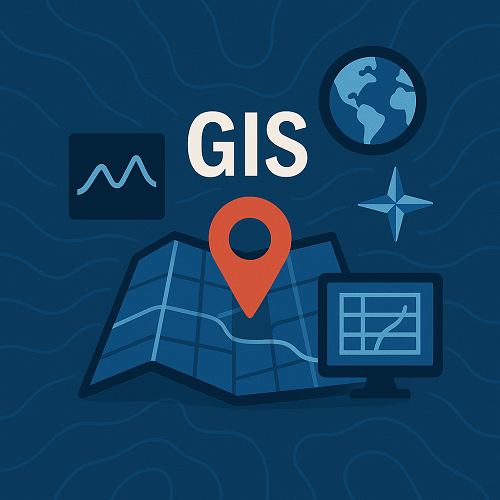The Power of GIS Technology: How Spatial Data Analytics Are Revolutionizing Business Decision-Making
For many years, businesses have been gathering and analyzing data to help make informed decisions. However, with the introduction of GIS technology, the data landscape has been transformed. GIS, or Geographic Information System, is a powerful tool that allows businesses to analyze and interpret spatial data. In this article, we will explore the power of GIS technology and how it is revolutionizing business decision-making.
Understanding GIS Technology
GIS technology is a system that allows businesses to capture, store, manipulate, analyze, and display data that is linked to a physical location. With GIS technology, businesses can analyze data in a geographical context. This includes analyzing data such as terrain, land use, and transportation networks.
GIS technology is particularly useful in the following areas:
1. Resource management: With GIS technology, businesses can better manage their natural resources, including water, land, and forests.
2. Urban planning: Cities and towns can use GIS technology to plan their land use patterns, transportation networks, and zoning regulations.
3. Disaster management: GIS technology is a powerful tool for disaster management. It can help emergency responders make informed decisions during natural disasters.
4. Business analytics: GIS technology is increasingly being used in business intelligence, allowing businesses to make informed decisions based on spatial data analytics.
The Benefits of GIS Technology
1. Improved accuracy: GIS technology allows businesses to analyze data with a high degree of accuracy. This is particularly useful in resource management where even small changes can have a significant impact on the environment.
2. Better decision making: With GIS technology, businesses have access to more accurate and detailed information. This allows for better decision making, particularly in the fields of urban planning and disaster management.
3. Improved communication: GIS technology can be used to create maps and visualizations that can be easily shared with stakeholders. This makes it easier to communicate complex data and ideas.
4. Cost savings: By leveraging GIS technology, businesses can identify cost savings opportunities. This includes optimizing logistics and supply chains, among other things.
5. Competitive advantage: Businesses that leverage GIS technology are likely to have a competitive advantage over those that don’t. This is because GIS technology allows businesses to make better informed decisions and react quickly to changes in the environment.
Conclusion
GIS technology is a game changer in the world of business decision-making. By allowing businesses to analyze data in a geographical context, GIS technology enables more informed decision-making. This has a range of applications from resource management to disaster management and business intelligence. As the world becomes increasingly complex, GIS technology will become an increasingly important tool for businesses looking to gain a competitive advantage.
FAQs
1. What is GIS technology?
GIS technology is a system that allows businesses to capture, store, manipulate, analyze, and display data that is linked to a physical location.
2. What are the benefits of GIS technology?
The benefits of GIS technology include improved accuracy, better decision making, improved communication, cost savings, and a competitive advantage.
3. What can GIS technology be used for?
GIS technology can be used for a range of applications, including resource management, urban planning, disaster management, and business analytics.
4. How does GIS technology enable better decision-making?
GIS technology allows businesses to analyze data in a geographical context. This enables more informed decision-making, particularly in the fields of urban planning and disaster management.
5. What industries can benefit from GIS technology?
Almost any industry can benefit from GIS technology. However, some of the industries that have seen significant benefits include natural resource management, urban planning, emergency management and logistics, and business intelligence.
